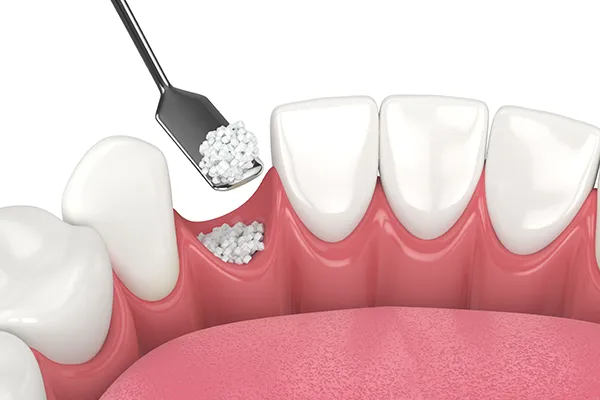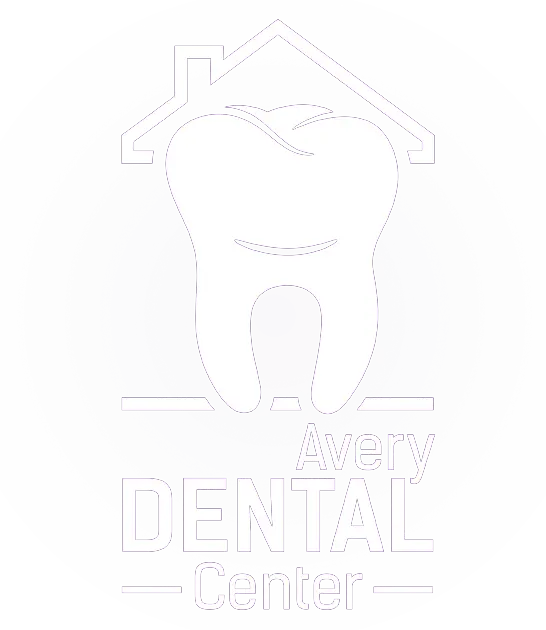Bone Grafting for Dental Implants
 Bone grafting for dental implant is a common preparatory procedure for patients with insufficient jawbone density. It plays a crucial role in ensuring the success of dental implants by providing a stable foundation for the implant posts. At Avery Dental Center, our dental team offers expert bone grafting services to help restore your oral health and function. Bone grafting for dental implant is a common preparatory procedure for patients with insufficient jawbone density. It plays a crucial role in ensuring the success of dental implants by providing a stable foundation for the implant posts. At Avery Dental Center, our dental team offers expert bone grafting services to help restore your oral health and function.
What Is Bone Grafting for Dental Implants?
Bone grafting in dentistry involves adding bone or bone-like materials to areas of the jaw where bone loss has occurred. This procedure is often necessary before placing dental implants, especially when the jawbone is too thin or soft to support an implant.
Common causes of jawbone loss include:
| • |
Periodontal Disease - Chronic gum infections can lead to bone deterioration.
|
| • |
Tooth Loss - Missing teeth can cause the jawbone to resorb over time.
|
| • |
Trauma - Injuries to the face or jaw can result in bone loss. |
Before recommending a bone graft, our dental team will assess your jawbone density using advanced imaging techniques like X-rays or CT scans. This evaluation helps determine the extent of bone loss and the most appropriate grafting approach.
The Dental Bone Graft Procedure
The dental bone graft procedure typically involves the following steps:
| • |
Anesthesia - Local anesthesia is administered to numb the area; sedation options are available for patient comfort.
|
| • |
Incision - A small incision is made in the gum tissue to expose the jawbone.
|
| • |
Graft Placement - The chosen graft material is placed in the area of bone deficiency.
|
| • |
Membrane Application - A protective membrane may be placed over the graft to aid healing.
|
| • |
Suturing - The gum tissue is repositioned and sutured closed. |
The procedure duration varies depending on the complexity and the amount of grafting needed. In some cases, platelet-rich plasma (PRP) derived from your blood may be used to enhance healing.
Types of Dental Bone Grafts
Several types of bone grafts are available, each with specific indications:
| • |
Autograft - Bone harvested from your own body, often from the hip or chin; offers high compatibility and success rates.
|
| • |
Allograft - Processed human donor bone; eliminates the need for a second surgical site.
|
| • |
Xenograft - Bone derived from animal sources, typically bovine; used when large volumes are needed.
|
| • |
Alloplast - Synthetic materials like hydroxyapatite; suitable for patients preferring non-biological options. |
The choice of graft material depends on factors such as the extent of bone loss, patient preference, and overall health.
Healing Time and Recovery After Bone Grafting
Healing after a bone graft is a gradual process that typically spans several months:
| • |
Initial Healing (First Week) - Swelling and minor discomfort are common; soft diet recommended.
|
| • |
Early Bone Formation (2-4 Weeks) - New bone cells begin to grow; continued adherence to post-operative care is crucial.
|
| • |
Intermediate Healing (1-3 Months) - The graft integrates with existing bone, increasing stability.
|
| • |
Final Maturation (3-6 Months) - Complete integration occurs, preparing the site for implant placement. |
Factors influencing healing time include the type of graft used, the patient's overall health, and adherence to post-operative instructions. It's essential to maintain good oral hygiene and attend follow-up appointments to monitor progress.
Do I Need a Bone Graft for My Dental Implant?
Not all patients require a bone graft before receiving a dental implant. The need for grafting depends on several factors:
| • |
Duration of Tooth Loss - Longer periods without a tooth can lead to more significant bone loss.
|
| • |
Bone Density - Insufficient bone may necessitate grafting to support an implant.
|
| • |
Location of Implant - Areas like the upper jaw near sinuses often require additional bone support.
|
| • |
Overall Health - Conditions like osteoporosis can affect bone quality. |
Our dental team will conduct a thorough evaluation, including imaging studies, to determine if a bone graft is necessary for your specific case.
Bone Graft and Dental Implant Timeline
The timeline for receiving a dental implant after a bone graft varies:
| • |
Consultation and Evaluation - Initial assessment and treatment planning.
|
| • |
Bone Graft Procedure - Performed if necessary, followed by a healing period of 3-6 months.
|
| • |
Implant Placement - Once the graft has integrated, the implant is placed.
|
| • |
Osseointegration - The implant fuses with the bone over several months.
|
| • |
Crown Placement - Final restoration is attached after successful integration. |
This process ensures the implant has a stable foundation, increasing the likelihood of long-term success.
Cost of Bone Grafting for Dental Implants
The cost of bone grafting varies based on several factors:
| • |
Type of Graft Material - Autografts tend to be more expensive due to the additional surgical site.
|
| • |
Extent of Bone Loss - Larger grafts require more material and time.
|
| • |
Geographic Location - Costs can vary by region and practice.
|
| • |
Surgeon's Experience - Highly experienced surgeons may charge more for their expertise. |
On average, bone grafting procedures can range from $500 to $3,000. It's important to consult with our office to obtain a personalized estimate and discuss insurance coverage or financing options.
Schedule a Consultation
Determining your candidacy for dental implants and potential need for bone grafting begins with a comprehensive consultation. During this visit, our dental team will:
| • |
Conduct a Thorough Examination - Assess your oral health and bone density.
|
| • |
Review Medical History - Identify any factors that may affect treatment.
|
| • |
Develop a Personalized Treatment Plan - Outline the steps tailored to your needs. |
Our team at Avery Dental Center is committed to providing expert care using the latest technology to ensure optimal outcomes for your dental implant journey.
FAQs
What is bone grafting for dental implants?
Bone grafting for dental implants is a surgical procedure that involves adding bone or bone-like materials to areas of the jaw with insufficient bone density. This process creates a stable foundation for dental implants.
Why might I need a bone graft before getting a dental implant?
A bone graft may be necessary if your jawbone is too thin or soft to support a dental implant. Factors like prolonged tooth loss, periodontal disease, or trauma can lead to bone loss, making grafting essential for implant stability.
How long does it take to heal after a dental bone graft?
Healing time varies but typically ranges from 3 to 6 months. This period allows the graft to integrate with your natural bone, creating a solid base for the dental implant.
Are there different types of bone graft materials?
Yes, common types include autografts (your own bone), allografts (donor human bone), xenografts (animal bone), and alloplasts (synthetic materials). The choice depends on your specific needs and the extent of bone loss.
What factors influence the cost of a dental bone graft?
The cost is influenced by the type of graft material used, the complexity of the procedure, the surgeon's experience, and geographic location. Additional procedures, such as tooth extractions or sinus lifts, can also affect the total cost. |

 Bone grafting for
Bone grafting for